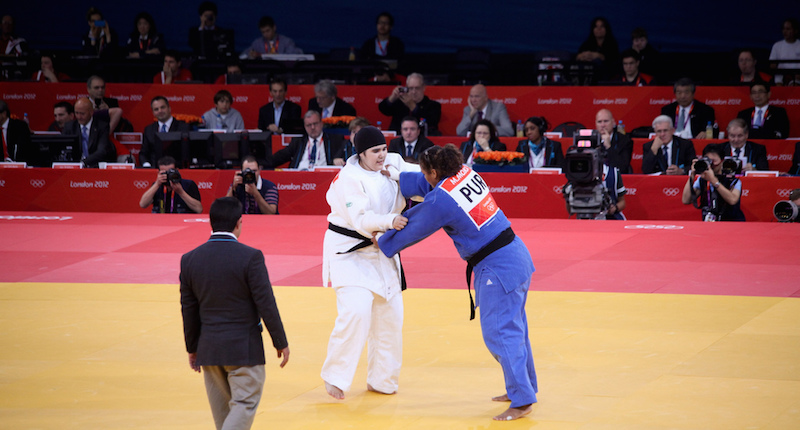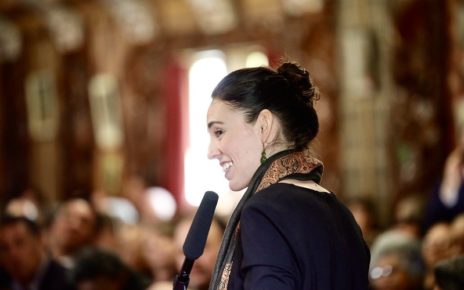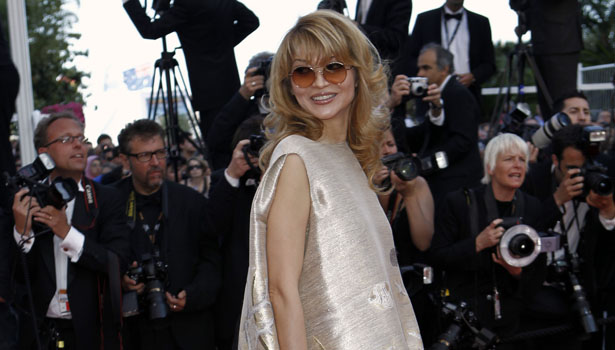Despite the scandals faced by the Rio 2016 Olympics, one story that has been making the headlines this week is the Saudi Arabian Olympic Team, namely the presence of four female athletes on the team from the conservative Islamic country.
For the second time in the modern Olympics, Saudi Arabia has sent female athletes to compete in this year’s games. Saudi has doubled the number of athletes they have sent to the 2012 London games. This contradicts Prince Fahad bin Lalawi Al Saud’s controversial position on women’s participation in the games. In January 2015, he had proposed that Saudi Arabia could host gender-segregated Olympic games in cooperation with neighbouring Bahrain, where the former country would host male athletes and the latter would host female athletes.
Saudi Arabia’s four female representatives at this year’s games include runners Sarah Attar and Kariman Abuljadayel, as well as judo competitor Wojdan Shaherkani, and fencer Lubna al-Omair. Some have interpreted this participation as a positive development for women’s rights in the country. Associated Press has noted that the increased representation of women is happening against the backdrop of other important developments in the country, including the right for women to vote and pursue candidacies in municipal elections, to take effect this December.
Attar has spoken at a Saudi girls’ school saying, “it’s important for girls to keep seeing women athletes who look like them. It’s special to me that I get to be someone who allows that.” At same time, female athletes will be competing in accordance with traditional and religious requirements regarding attire, and Attar plans to compete fully covered, in hopes that women will realize that wearing an abaya is not a barrier to participating in athletics.
Other sources have been less optimistic about the increase in number of female Saudi athletes at the games this year. Some researchers have commented that most of the women athletes have trained, studied, or grown up outside of Saudi Arabia. Attar grew up in California, Abuljadayel studies in Boston, Shaherkani trained in the US, and al-Omair trained in Egypt. Lauding the appearance of a more gender equitable team hides the fact that most women in the country are unable to participate in exercise, a problem with severe health impacts according to a Human Rights Watch (HRW) report.
In Saudi, 44 percent of women are obese compared to 26 percent of men, which reflects women’s unequal access to physical activity. Minky Worden, director of Global Initiatives at HRW has said, “as the Rio Olympics open, Saudi Arabia needs to change the game by addressing the profound discrimination that holds back women’s and girls’ participation in sport in the kingdom.” Currently, women are banned from being spectators at men’s matches, and most state schools do not offer physical education for girls, while boys have access to facilities and classes.
The impression of the four female Saudi Arabian athletes as important role models for women in the country should be subjected to further scrutiny. Ali Al-Ahmed, a Saudi scholar of women’s sports and fitness, has expressed worries that “[the] girls going to Rio are going to cover up the suffering of 10 million women in Saudi Arabia.” He has emphasized the importance of continued pressure from the international community to change policy in Saudi Arabia, even after the Olympics end.
Saudi Arabian women are entitled access to healthy livelihoods regardless of their culture or religion. Spectators during these games should not let themselves be blinded by the façade of glamourization of the events. Instead, the spotlight of the international stage presents the international community with an opportunity to focus on the continued injustices in participating countries.
Photo: Wojdan Shaherkani at the 2012 London Games, by Martin Hesketh via Flickr. Licensed under CC BY 2.0.
Disclaimer: Any views or opinions expressed in articles are solely those of the authors and do not necessarily represent the views of the NATO Association of Canada.




